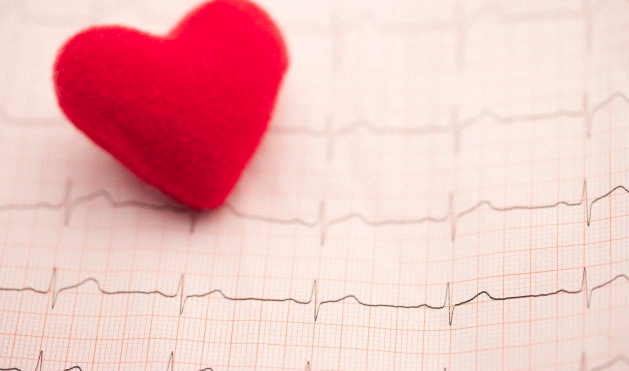 From anger in high profile cases like in the death of Trayvon Martin, or a silly argument between friends that turned deadly, anger flows in our community. We all feel angry at times; it’s a natural response to threats and attacks, injustice and disappointment. Anger is a powerful emotion and releasing the pressure that builds inside is essential to deal with deep-seated problems and move on. But if anger isn’t dealt with in a healthy way, it can have a significant effect on your daily life, relationships, achievements and mental well-being.
From anger in high profile cases like in the death of Trayvon Martin, or a silly argument between friends that turned deadly, anger flows in our community. We all feel angry at times; it’s a natural response to threats and attacks, injustice and disappointment. Anger is a powerful emotion and releasing the pressure that builds inside is essential to deal with deep-seated problems and move on. But if anger isn’t dealt with in a healthy way, it can have a significant effect on your daily life, relationships, achievements and mental well-being.
Some doctors have gone as far to see that anger kept inside and bitterness can have a number of negative effects on the body. Even the physical reaction you have when you see or interact with someone you are bitter against is literally toxic for your body.
Learning how to express anger can protect your heart, mind, and health. Here's the right way to do it.
Understanding Anger
The emotion of anger is neither good nor bad. It’s perfectly healthy and normal to feel angry when you’ve been mistreated or wronged. The feeling isn't the problem—it's what you do with it that makes a difference. Anger becomes a problem when it harms you or others.

Mastering the art of constructive anger takes work, but the more you practice, the easier it will get. And the payoff can be huge. Learning to control your anger and express it appropriately can help you build better relationships, achieve your goals, and lead a healthier, more satisfying life.
What Kinds Of Problems Can Be Linked To Anger?
Anger in itself is neither good nor bad; it becomes a problem when it harms us or other people. Anger is the emotion most likely to cause problems in relationships in the family, at work and with friends. People with a long term anger problem tend to be poor at making decisions, take more risks than other people and are more likely to have a substance misuse problem.
It is linked to poorer overall physical health as well as particular conditions, such as:
- High blood pressure
- Colds and flu
- Coronary heart disease
- Stroke
- Cancer
- Gastro-intestinal problems
Emotions And The Heart
There are many studies and analysis with evidence that supports the link between emotions and heart disease. To be specific, anger and hostility are significantly associated with more heart problems in initially healthy people, as well as a worse outcome for patients already diagnosed with heart disease.
One study showed that chronically angry or hostile adults with no history of heart trouble might be 19% more likely than their more placid peers to...
... develop heart disease. The researchers found that anger and hostility seemed to do more harm to men's hearts than women's. Among patients already diagnosed with heart disease, those with angry or hostile temperaments were 24% more likely than other heart patients to have a poor prognosis.
Some doctors now consider anger a heart disease risk factor that can be modified, just as people can lower their cholesterol or blood pressure. "We're really good at treating heart attacks, but we're not that good at preventing them," says Holly S. Andersen, MD, cardiologist and director of education and outreach at the Ronald O. Perelman Heart Institute at New York-Presbyterian Hospital/Weill Cornell Medical Center. "Stress is not as easy to measure as your cholesterol level or your blood pressure, which are clearly objective. But it's really important that physicians start taking care of the whole person -- including their moods and their lives -- because it matters."
Bottling Up Anger Bad for Men's Hearts
How you cope with anger may affect your cardiovascular health, especially if you're a man. If you tend to bottle up your emotions, you may be in more danger than men who vent their anger appropriately.
Men ages 50 to 85 who expressed a moderate amount of anger had almost half the risk of nonfatal heart attacks over two years, compared with men who expressed less anger. They dropped their risk of having strokes even more — by 58 percent.
In other studies, suppressing anger has been linked to high blood pressure, clogged arteries, and unhealthy cholesterol levels. But this area of research is still relatively new, and more investigation is under way.
Venting some anger may be healthier than the two extremes: letting loose a lot of anger or bottling it all up. Because anger is often viewed as a bad thing, many people try not to express it. But the heart-healthiest route might be to learn how to channel anger effectively.
Understand How We Express Anger
Usually, anger manifests itself in one of three ways. Outward expressions of anger include yelling, screaming or violence, and even less threatening approaches like sarcasm. Inward expressions include feelings like seething, biting your tongue, or suppressing angry feelings. Neither of these approaches is healthy. The third way to express anger is control and channel it into more acceptable methods of expression.
Here are some tips that will help you deal with anger, constructively:
- Recognize that anger is a valid emotion and is necessary for survival. Anger has the capacity to wake you up to things that need to change and to help you take the first steps towards changing your situation.
- Identify what is making you angry. Displacement is a common reaction to anger. Rather than expressing anger towards who or what is actually making you angry, you may become irritated with your spouse or children, friends or colleagues, minor inconveniences or even yourself. If you find yourself being generally angry, trace back your anger to it origin.
- Practice relaxation techniques. Anger can be an overwhelming emotion because it is so physical--your heart and mind may race, your muscles can tense and you may feel sick. Focus on relaxing your body and mind to help look at the situation more objectively.
- Be assertive as you express anger rather than being aggressive or physical. Clearly and firmly discuss why you are angry with the person who has caused your anger, emphasizing your needs. If she tries to argue, do not engage in the argument. Just come back to your own needs.
- Express your anger safely if you need to be physical. Sometimes a physical expression of anger can be helpful. If you need to, hit a cushion or throw a pillow rather than lashing out at yourself, another person or an animal.
- Use anger to fuel constructive or creative activity. If expressing your anger did not diminish it, seek a physical activity to direct it towards. Dance, exercise and drumming are three ways you can work off the extra energy of anger. Projects that you find personally rewarding can also help you deal with anger.








